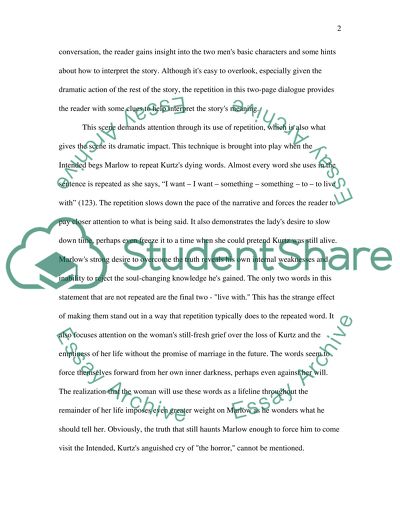Cite this document
(“The Deep Sense of Dramatic Irony: Conrad Through the Entire Book Research Paper - 1”, n.d.)
The Deep Sense of Dramatic Irony: Conrad Through the Entire Book Research Paper - 1. Retrieved from https://studentshare.org/literature/1575673-analytical-essay-about-heart-of-darkness-4th-edition
The Deep Sense of Dramatic Irony: Conrad Through the Entire Book Research Paper - 1. Retrieved from https://studentshare.org/literature/1575673-analytical-essay-about-heart-of-darkness-4th-edition
(The Deep Sense of Dramatic Irony: Conrad Through the Entire Book Research Paper - 1)
The Deep Sense of Dramatic Irony: Conrad Through the Entire Book Research Paper - 1. https://studentshare.org/literature/1575673-analytical-essay-about-heart-of-darkness-4th-edition.
The Deep Sense of Dramatic Irony: Conrad Through the Entire Book Research Paper - 1. https://studentshare.org/literature/1575673-analytical-essay-about-heart-of-darkness-4th-edition.
“The Deep Sense of Dramatic Irony: Conrad Through the Entire Book Research Paper - 1”, n.d. https://studentshare.org/literature/1575673-analytical-essay-about-heart-of-darkness-4th-edition.


